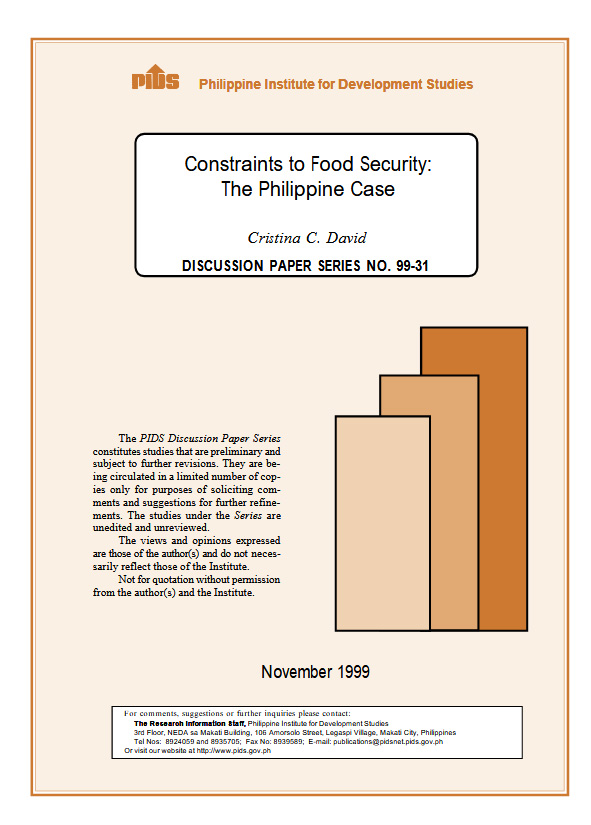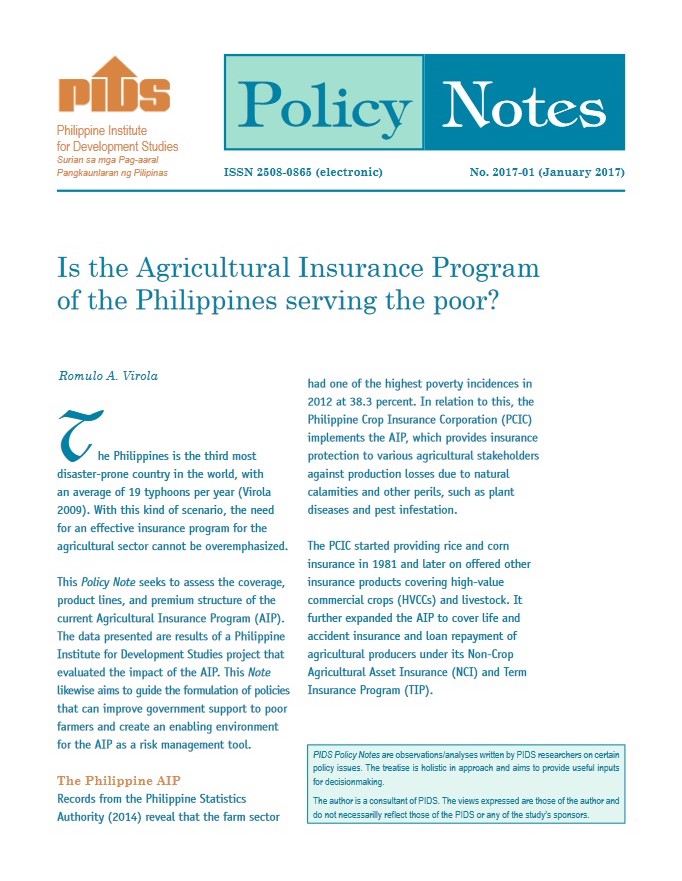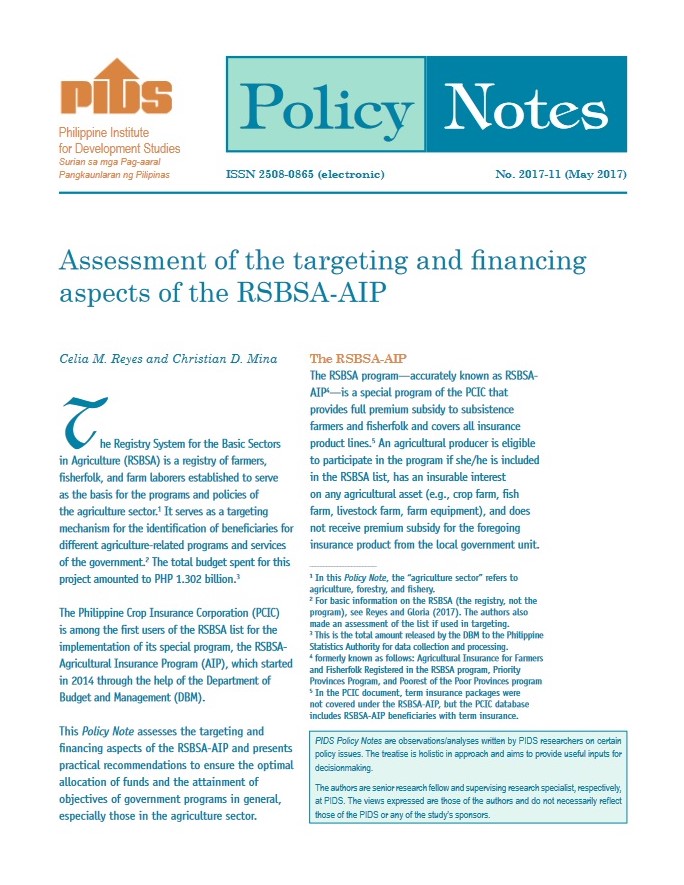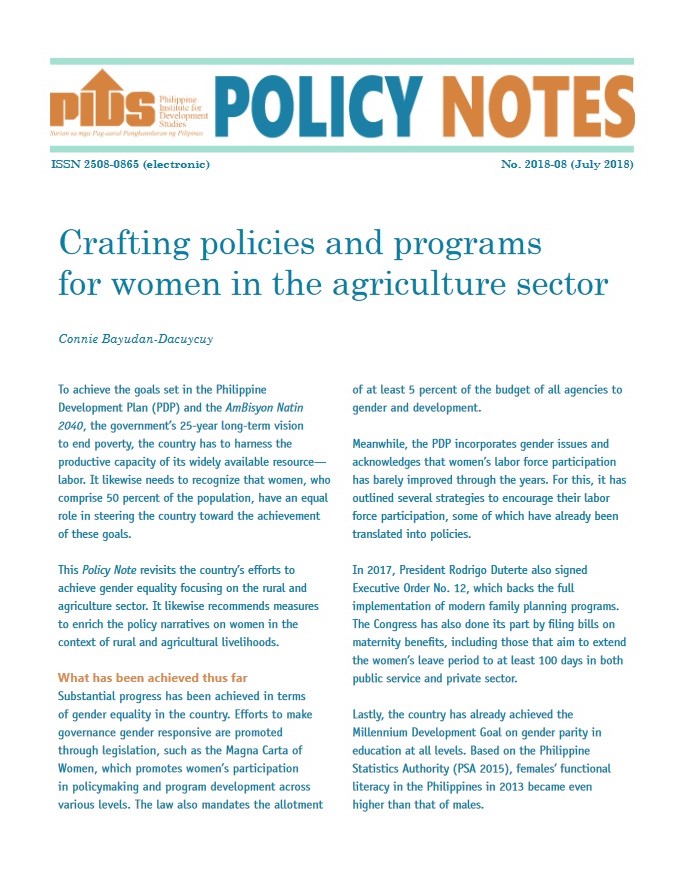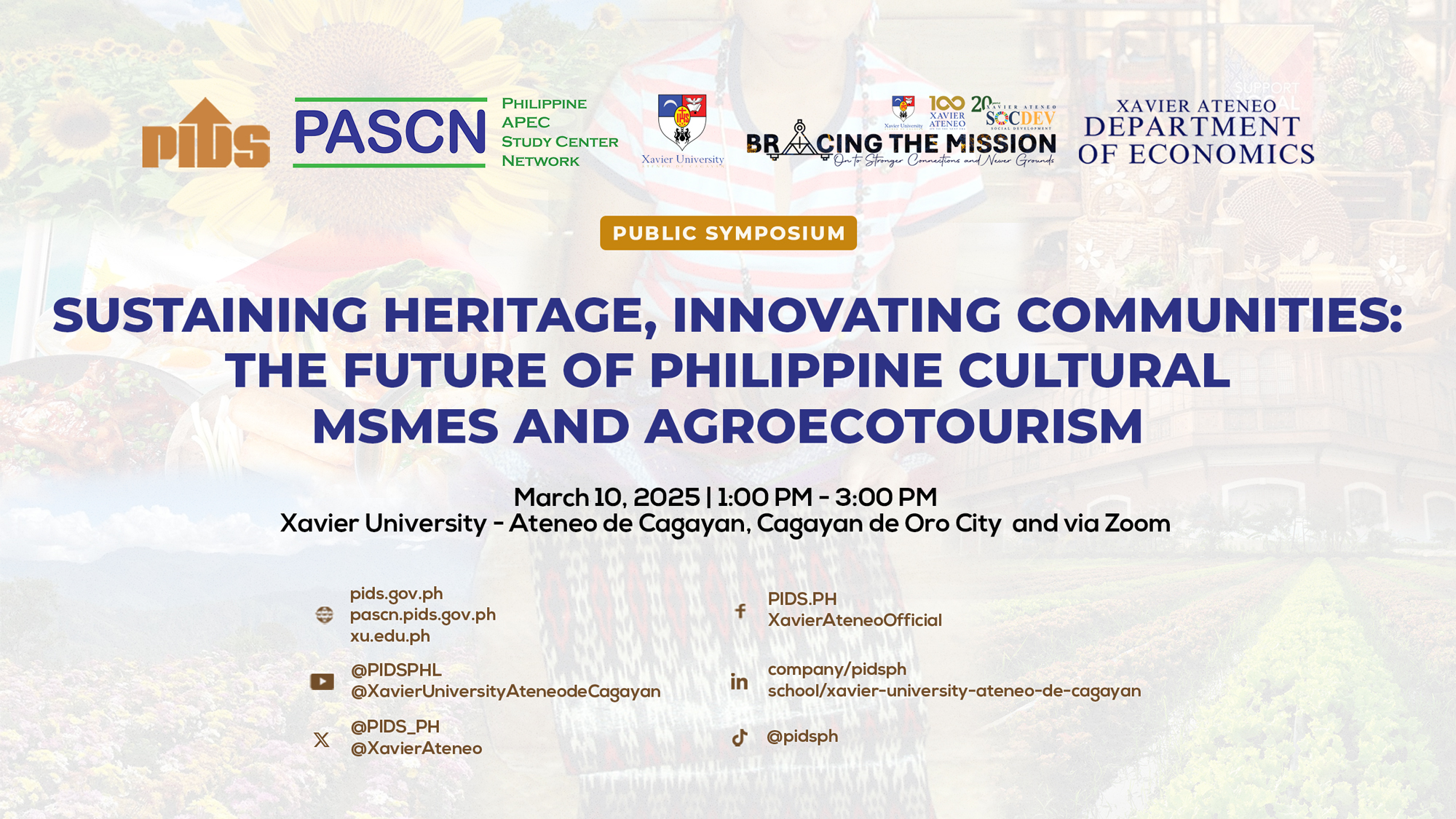Over the past two decades, the Philippine economic growth has been erratic and lower than most developing countries in Asia. The agriculture sector has not performed well since 1980s, hence losing its comparative advantage. Recommendations of Congressional Commission on Agricultural Modernization is adopted through the Agricultural and Fisheries Modernization Act which spells out the need for policy and institutional reforms and setting up of public expenditures program. High food prices affect the food security of the large majority of the poor and distorted price incentives lead to lower sectoral and economy wide income. To address market failure in the agriculture sector, there is therefore a need to implement appropriate policies with respect to trade and exchange rate policies, financial markets, intellectual property rights and biosafety. In addition, the paper cites the need for a cost-effective public expenditure programs in research and extension, irrigation and market infrastructure. Efficient institutional frameworks for property rights and government bureaucracy are also suggested.
Citations
This publication has been cited 3 times
- Bello, Amelia L.. 2004. Food security, agricultural efficiency and regional integration. Discussion Papers DP 2004-38. Philippine Institute for Development Studies.
- Bello, Amelia L.. 2005. Ensuring food security: A case for ASEAN integration. Asian Journal of Agriculture and Development, 2, nos. 1-2, 1-22. Southeast Asian Regional Center for Graduate Study and Research in Agriculture (SEARCA).
- World Bank. 2000. Philippines - growth with equity: The remaining agenda - a world bank social and structural review. World Bank Publications - Reports 15142. The World Bank Group.

